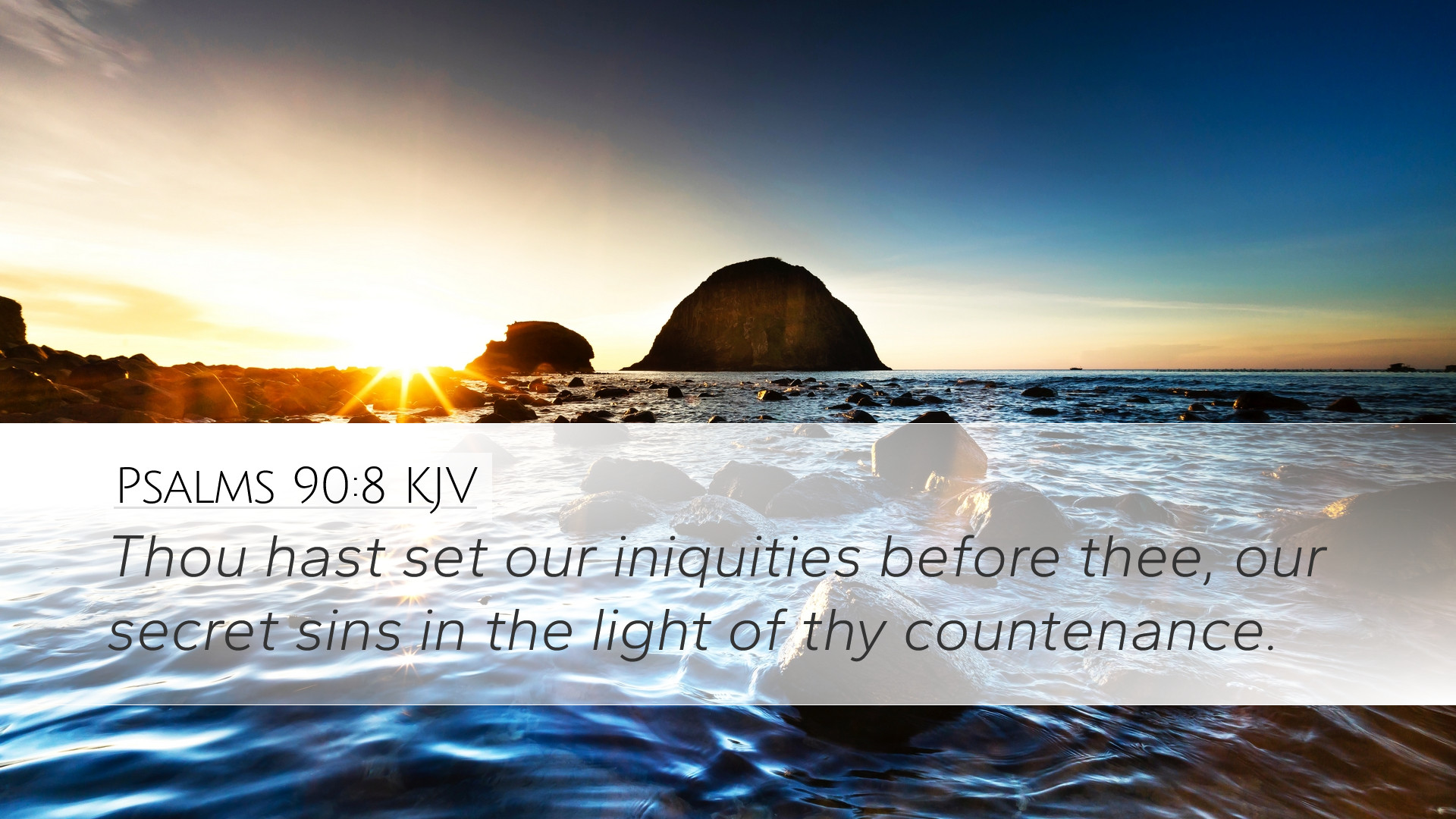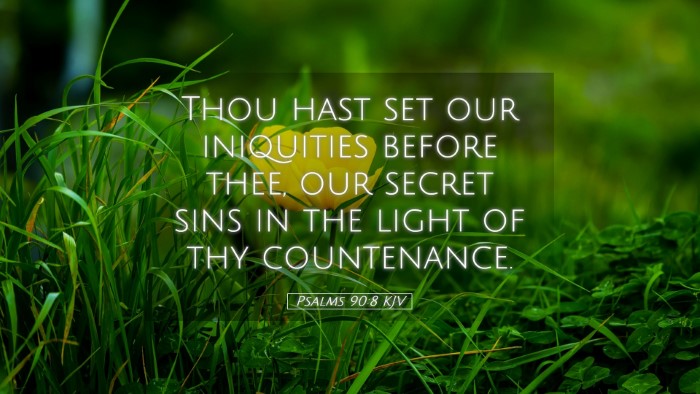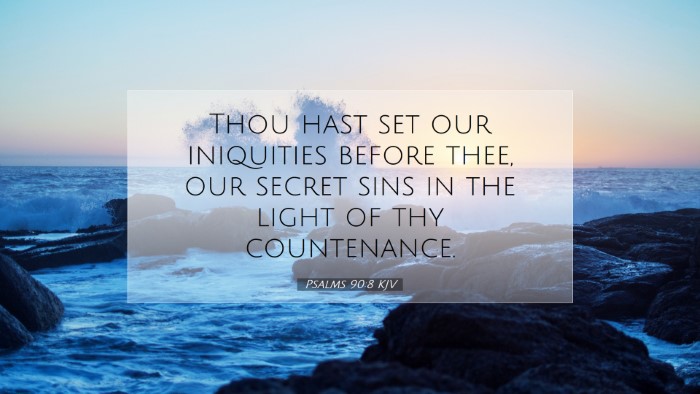Commentary on Psalms 90:8
Verse: "You have set our iniquities before you, our secret sins in the light of your presence." - Psalm 90:8
The verse from Psalms 90:8 serves as a profound reminder of the nature of God’s omniscience and the reality of human sinfulness. In this commentary, we will explore various insights from notable public domain commentaries, emphasizing its theological, moral, and pastoral implications.
1. The Context of Psalm 90
Psalms 90 is a prayer of Moses, the man of God. It deals with the themes of mortality and the eternal nature of God, contrasting human frailty with divine eternity. In the preceding verses, Moses speaks of the brevity of life and the inevitability of death. This context illuminates verse 8, as it reflects the serious implications of being laid bare before an omnipotent God.
2. Theological Insights
2.1 Omniscience of God
Albert Barnes emphasizes that God is fully aware of all human actions—both those visible to others and those concealed in the heart. Iniquities and secret sins are not hidden from Him; they are evident in His sight. This truth offers a sobering reflection on the nature of God, who does not merely see outward appearances but penetrates the very fabric of human thoughts and intentions.
2.2 The Nature of Sin
Matthew Henry comments that the psalmist acknowledges the gravity of sin by referencing both "iniquities" (open transgressions) and "secret sins" (those violations known only to the individual and God). Sin is multifaceted and deeply ingrained in humanity, indicating that even our hidden intentions are subject to God’s judgment. As such, it challenges individuals to examine their lives profoundly.
3. The Moral Implication of the Verse
3.1 Accountability before God
From Adam Clarke’s perspective, the psalm highlights the serious nature of accountability before God. Individuals may attempt to hide or rationalize their sins, but God’s light exposes what is concealed. This notion of accountability reinforces the necessity of confession and repentance. Clarke's commentary implores readers to approach God with humility, recognizing that nothing can remain hidden from His scrutiny.
3.2 The Need for Repentance
The acknowledgment of both public misconduct and private failings necessitates a sincere response in the form of repentance. This response can foster spiritual renewal and deeper communion with God. The psalm encourages an honest self-examination that can lead to greater holiness. Such themes are crucial for pastors and theologians aiming to shepherd congregations towards integrity and repentance.
4. The Pastoral Perspective
4.1 Comfort and Conviction
For pastors, this verse offers a dual role: it brings both comfort and conviction. Understanding that God knows all of our iniquities should serve to comfort believers who may feel isolated in their struggles with sin. They are reminded that they can come to a God who understands and forgives. On the other hand, it acts as a call to holiness, urging believers not to take God’s grace for granted but to strive earnestly for righteousness.
4.2 Teaching the Congregation
In teaching the congregation, pastors can utilize this verse to encourage discussions about the hidden areas of sin in life. Engaging congregants in conversations about accountability and God’s omniscience cultivates a culture of openness and transparency in fellowship. This can lead to corporate repentance and renewal within the church community.
5. Concluding Thoughts
Psalms 90:8 serves as a profound cautionary reminder of the reality of human sinfulness in light of God’s holiness. It encapsulates the vital truth that nothing is hidden from God, instilling both fear and hope in the hearts of believers. The insights from the commentaries of Matthew Henry, Albert Barnes, and Adam Clarke converge to emphasize the need for personal reflection, corporate accountability, and the assurance of divine forgiveness.
As you meditate on this verse, consider both the solemnity of your sins and the grace available through repentance. Let this verse inspire a deeper walk with God, wherein your private and public life align in truth and integrity.


